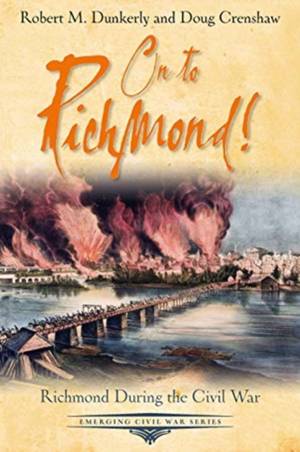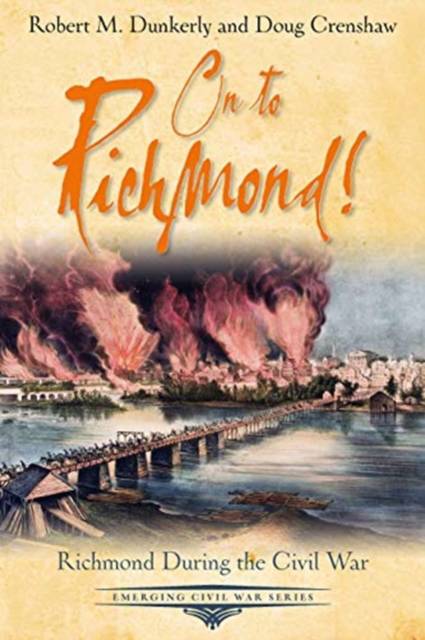
- Afhalen na 1 uur in een winkel met voorraad
- Gratis thuislevering in België vanaf € 30
- Ruim aanbod met 7 miljoen producten
- Afhalen na 1 uur in een winkel met voorraad
- Gratis thuislevering in België vanaf € 30
- Ruim aanbod met 7 miljoen producten
Zoeken
€ 16,95
+ 33 punten
Omschrijving
"On To Richmond!" cried editors for the New York Tribune in the spring of 1861. Thereafter, that call became the rallying cry for the North's eastern armies as they marched, maneuvered, and fought their way toward the capital of the Confederacy.
Just 100 miles from Washington, DC, Richmond served as a symbol of the rebellion itself.
Richmond was home to the Confederate Congress, cabinet, president, and military leadership. And it housed not only the Confederate government but also some of the Confederacy's most important industry and infrastructure. The city was filled with prisons, hospitals, factories, training camps, and government offices.
Through four years of war, armies battled at its doorsteps--and even penetrated its defenses.
Civilians felt the impact of war in many ways: food shortages, rising inflation, a bread riot, industrial accidents, and eventually, military occupation. To this day, the war's legacy remains deeply written into the city and its history.
On to Richmond!: Richmond During the Civil War by historians Doug Crenshaw and Robert M. Dunkerly tells the story of the Confederate capital before, during, and after the Civil War. This guidebook includes a comprehensive list of places to visit: the battlefields around the city, museums, historic sites, monuments, cemeteries, historical preservation groups, and more.
Just 100 miles from Washington, DC, Richmond served as a symbol of the rebellion itself.
Richmond was home to the Confederate Congress, cabinet, president, and military leadership. And it housed not only the Confederate government but also some of the Confederacy's most important industry and infrastructure. The city was filled with prisons, hospitals, factories, training camps, and government offices.
Through four years of war, armies battled at its doorsteps--and even penetrated its defenses.
Civilians felt the impact of war in many ways: food shortages, rising inflation, a bread riot, industrial accidents, and eventually, military occupation. To this day, the war's legacy remains deeply written into the city and its history.
On to Richmond!: Richmond During the Civil War by historians Doug Crenshaw and Robert M. Dunkerly tells the story of the Confederate capital before, during, and after the Civil War. This guidebook includes a comprehensive list of places to visit: the battlefields around the city, museums, historic sites, monuments, cemeteries, historical preservation groups, and more.
Specificaties
Betrokkenen
- Auteur(s):
- Uitgeverij:
Inhoud
- Aantal bladzijden:
- 192
- Taal:
- Engels
- Reeks:
Eigenschappen
- Productcode (EAN):
- 9781611214918
- Verschijningsdatum:
- 15/01/2021
- Uitvoering:
- Paperback
- Formaat:
- Trade paperback (VS)
- Afmetingen:
- 150 mm x 226 mm
- Gewicht:
- 317 g

Alleen bij Standaard Boekhandel
+ 33 punten op je klantenkaart van Standaard Boekhandel
Beoordelingen
We publiceren alleen reviews die voldoen aan de voorwaarden voor reviews. Bekijk onze voorwaarden voor reviews.











